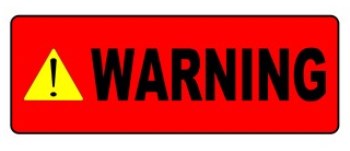
On January 9, 2017, the U.S. Court of Appeals for the Federal Circuit issued its decision in Phigenix, Inc. v. ImmunoGen, Inc. (Case No. 2016-1544), severely limiting the appellate rights of petitioners in America Invents Act proceedings that do not engage in potentially infringing activities. While the focus of the opinion is non-practicing entities (NPEs), the Phigenix decision appears to apply the same “actual case or controversy” standard to appeals from the Patent Trial and Appeal Board (PTAB) that plaintiffs must meet in district court declaratory judgment actions. As written, the decision may have the unintended consequence of barring a direct competitor who has not yet been accused of infringement from appealing a loss at the PTAB.
The Phigenix case involves an unusual set of facts. ImmunoGen’s challenged patent (U.S. Patent No. 8,337,856) is exclusively licensed to Genentech Inc., and covers Genentech’s cancer drug Kadcyla®. Phigenix is a non-practicing entity that holds patents related to cancer treatments. According to Phigenix, it filed an inter partes review (IPR) challenging ImmunoGen’s patent “[t]o further its commercialization efforts with respect to its patent portfolio” after Genentech refused to take a license to one of Phigenix’s patents.
Although anyone who is not estopped can pursue an IPR at the Patent Office, the Federal Circuit held that a petitioner must prove Article III standing to appeal the PTAB’s final written decision. Acknowledging that this was an issue of first impression, the Federal Circuit held that standing to appeal an administrative decision from the PTAB to the federal courts was governed by the “actual case or controversy” standard that applies to district court lawsuits. The court further held that the appellant must provide affirmative evidence establishing standing in its opening brief, and that “an appellant’s burden of production is the same as that of a plaintiff moving for summary judgment in the district court.”
Phigenix argued three bases for standing. First, it asserted that it had suffered an actual economic injury because it competed with ImmunoGen for licensing revenue from cancer drugs. Second, Phigenix argued that the America Invents Act created standing, because losing the procedural right to pursue an IPR was itself an injury in fact. Third, Phigenix argued that the estoppel provision of 35 U.S.C. § 315(e) created a separate injury, because it cannot raise any defense in a future infringement suit that it “raised or reasonably could have raised” in the IPR.
The Federal Circuit rejected each of these arguments, noting that “Phigenix does not contend that it faces risk of infringing the ʼ856 patent, that it is an actual or prospective licensee of the patent, or that it otherwise plans to take any action that would implicate the patent.” The court did not preclude the possibility that competition for licensing revenue could give rise to Article III standing, but found that Phigenix had not provided sufficient evidence to establish such an injury in this case.
While the wording of the Phigenix decision implies that “fac[ing] risk of infringing [a challenged] patent” or other “plans to take… action[s] that would implicate the patent” could give rise to Article III standing for an appeal, petitioners in PTAB proceedings should take care. None of those listed activities would be enough for standing in district court. For example, a company cannot normally file a declaratory judgment action before receiving a cease-and-desist letter from its rival, let alone before the company begins investing in allegedly infringing activity. If America Invents Act appeals are subject to the same standing requirements as declaratory judgment lawsuits, competitors will effectively be penalized for seeking the Patent Office’s guidance before risking infringement.
